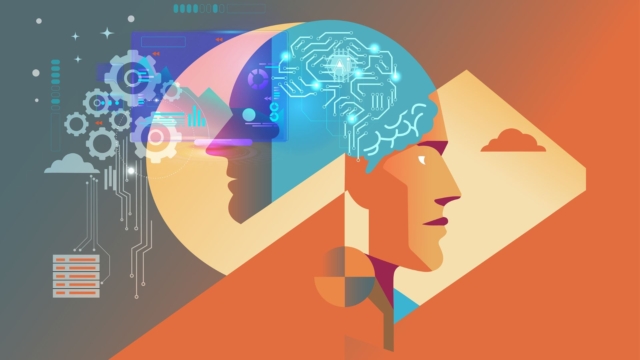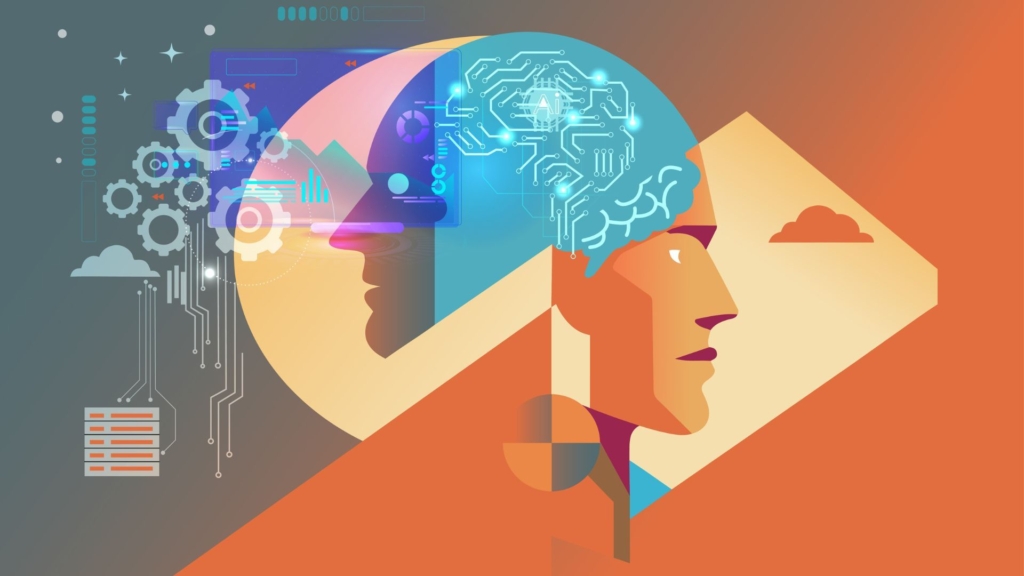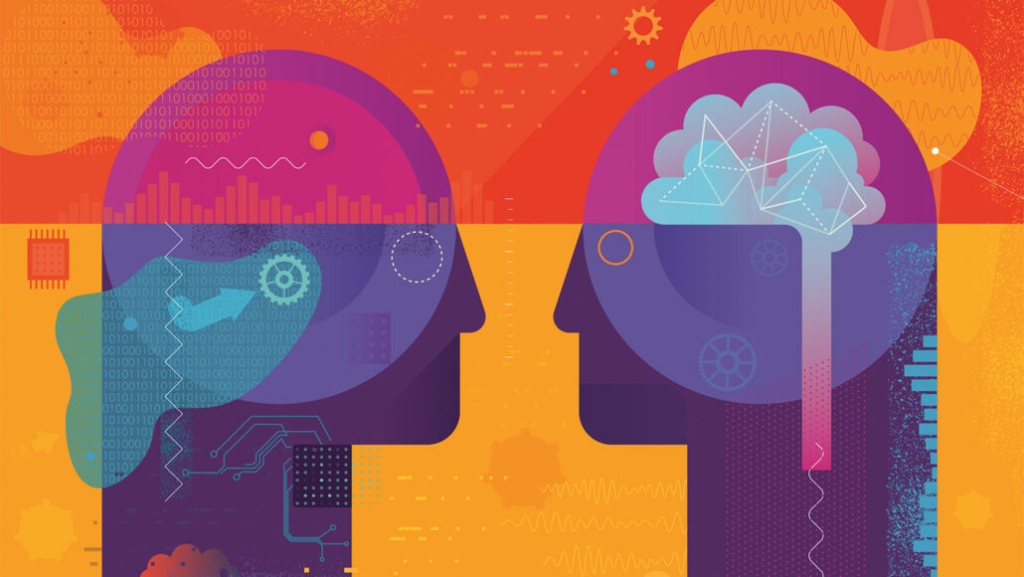How Young Workers Can Thrive As AI Improve Efficiency

Jun 23, 2025
Last updated on Nov 28, 2025
Skills in AI-heavy jobs today change 66% faster than other jobs. This demonstrates how AI improves efficiency at an unprecedented pace, creating both opportunity and risk. Companies that act now will win the best people and boost productivity. The question isn't if AI will change your workforce. It's whether you'll lead that change or fall behind.

Key takeaways
- Young workers with AI skills earn up to 25% more.
- Companies using AI grow five times faster than those that don’t.
- Success needs both tech skills and human skills like critical thinking and teamwork.
- 58% of young workers will quit for better training. AI upskilling is now key for keeping talent.
Your youngest workers see the positive impact of artificial intelligence on jobs and workplace transformation. But They’re clear about what they want. 58% will leave for better training opportunities, a key characteristic in the challenge of recruiting and retaining Gen Z Talents. Old career paths don’t work anymore as AI takes over basic tasks. Understanding what AI can help with and how AI improves efficiency is now vital for keeping people, boosting productivity, and staying ahead.
The skills and strategies young workers need to thrive with AI
The research reveals a striking competitive advantage: sectors embracing AI and workplace transformation achieve productivity growth five times faster than slower adopters, creating an immediate opportunity for organizations willing to invest in the right talent development strategies.
Key skills to develop
Success in an AI workplace starts with tech skills but goes much further. Young workers need a complete skill set that maximizes the impact of artificial intelligence while making them valuable partners with AI, not competitors against it.
- Technical foundations matter most. AI and tech literacy are now basic requirements for most jobs. This means understanding how AI works, including machine learning and how algorithms make decisions. Knowing programming languages like Python or R helps workers use AI systems better and automate routine tasks. Most important is prompt engineering—writing clear, effective instructions for AI tools. This new skill is what many employers actively seek when hiring, as it directly impacts the AI workforce development mindset.
- Data skills drive decision-making. Young workers must learn to collect, analyze, and understand data because AI needs good data to work well. Skills in Excel, SQL, or Python tools help professionals work with data and add value to AI projects. This goes beyond just technical work to include spotting trends, finding data problems, and making smart decisions based on insights.
- Human judgment becomes premium. Critical thinking and problem-solving become more valuable as AI handles routine analysis. AI can process lots of information and find patterns, but humans are still needed to understand results, consider context, and solve complex real-world problems. Young workers must learn to ask the right questions, check AI outputs carefully, and use their knowledge to guide decisions in today’s AI and workplace environment.
- Creativity unlocks innovation. As AI automates routine tasks, creativity and innovation skills matter more. This frees human workers to focus on creative problem-solving and strategic thinking. Young workers who use AI as a brainstorming partner will be uniquely positioned to drive innovation within their organizations.
- People skills remain irreplaceable. Communication, teamwork, empathy, and ethical awareness become more valuable as automation increases. These human abilities help young workers succeed in diverse teams, handle complex workplace situations, and ensure AI use aligns with human values and company goals.

Essential mindsets and strategies
Beyond specific skills, young workers need strategic mindsets for long-term success, and the 2025 total remuneration report also indicates that jobs requiring AI skills are commanding significantly higher pay. Research shows workers with AI skills can earn 56% wage premium, proving the real value of smart skill building in understanding how AI improves efficiency.
- Skills-first thinking opens doors. This approach focuses on what you can do, not just your degree or experience. Employers increasingly value proven abilities over traditional credentials. This especially helps young workers who may lack long work histories but have relevant AI skills. By building and showing specific capabilities, young workers can access high-value jobs and command premium compensation through effective candidate assessment solutions.
- Lifelong learning becomes non-negotiable. The most successful people will stay curious, actively seek new knowledge, and constantly adapt to new tools and methods. This means more than formal education. It includes trying new AI tools, joining professional groups, and regular skill updates to stay current with rapid technological changes, particularly the future of workforce skills requirements.
- The partnership mindset wins over competition. Young workers should use AI as a strategic partner instead of seeing it as competition. Focus on tasks that need human judgment, creativity, and emotional intelligence while using AI to boost productivity and analysis. This collaborative approach makes young workers essential orchestrators of human-AI partnerships.
A leader’s guide to building an AI-powered workforce
While CEOs recognize that most employees will need new AI skills, the gap between awareness and action remains substantial—creating a first-mover advantage for leaders who commit resources now to harness AI business transformation impact.

Champion continuous learning as strategic investment
Create active pathways for employees to build skills through internal programs, partnerships with schools, or support for outside certification. This goes beyond optional training to include smart investments in AI education that directly tie to business outcomes. Companies that don’t provide these opportunities risk losing their best talent, as young workers increasingly choose jobs based on skill development opportunities.
Adopt skills-first hiring for competitive advantage
Focus on proven abilities instead of traditional credentials when recruiting. This approach helps companies find high-potential candidates who may not fit old profiles but have the adaptability and tech skills needed for AI-enhanced roles. Professional HR consulting services can help organizations implement skills-first hiring strategies effectively while promoting diversity and building more flexible teams that can evolve with technology advances.
Frame AI as a strategic enabler, not a threat
Encourage teams to see AI as something that boosts human abilities rather than replacement technology. This frees employees to focus on high-value creative, strategic, and relationship work that drives innovation and competitive advantage. This positioning reduces worry about AI adoption while maximizing technology’s potential to improve company performance and employee satisfaction.
The implementation requires three key actions:
- Assess current capabilities – Audit existing skills against AI-enhanced role requirements
- Design learning pathways – Create clear progression routes for different career tracks
- Measure business impact – Track productivity gains and retention improvements from AI upskilling
Adding AI to your workforce demonstrates the positive impact of artificial intelligence on jobs while directly affecting productivity, talent retention, and competitive position. Success requires employees who blend technical AI skills with irreplaceable human abilities like critical thinking, creativity, and teamwork. Understanding what can AI help with and how AI improves efficiency enables organizations to build stronger workforce strategies. With young talent increasingly mobile and skills-focused, providing clear paths for continuous learning is essential for organizational success in the AI era. The companies that act decisively now will secure the talent advantage that defines market leadership in the next decade.

Solve your HR problems!
6th Floor, Star Building, 33 Mac Dinh Chi, Saigon Ward, Ho Chi Minh city, Vietnam




